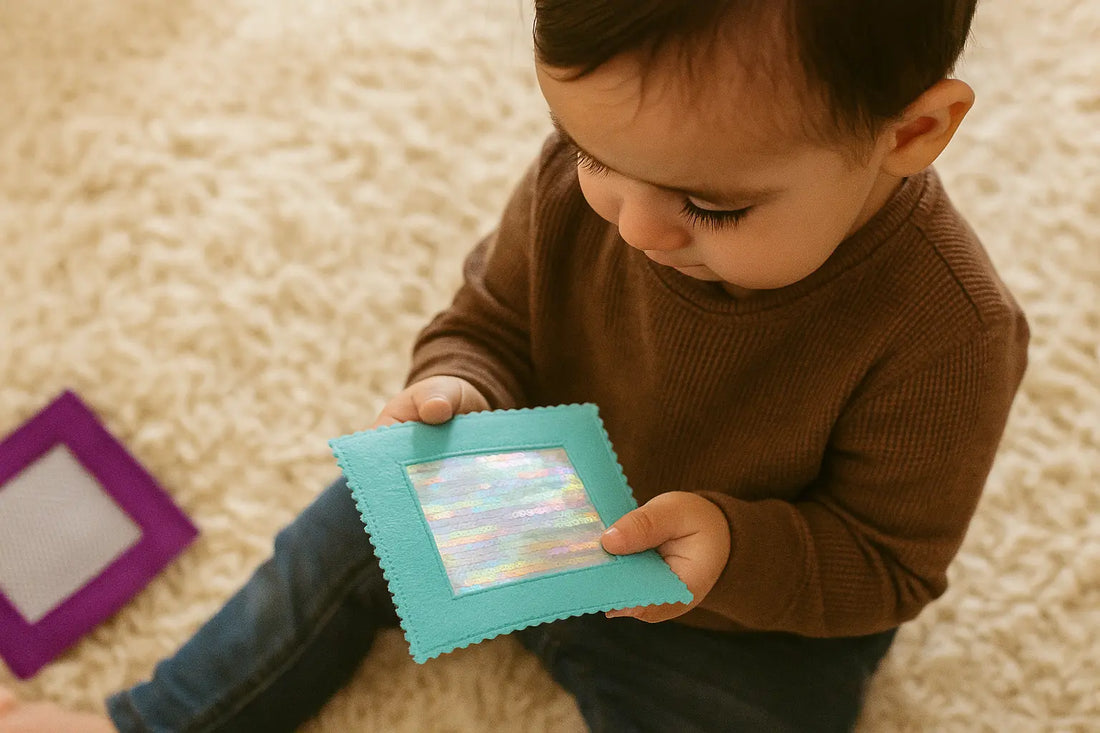
Sensory Play Ideas for Toddlers: Why It’s Crucial for Early Learning
Share
When it comes to early childhood development, sensory play for toddlers is more than just fun – it’s essential for building cognitive, emotional, and motor skills. Through sensory toys and activities, toddlers explore textures, colours, sounds, and movements that help shape their brain development and creativity.
At GiGeeGaGaa, we believe that hands-on experiences spark curiosity and set the foundation for lifelong learning. That’s why our educational toys are designed to make sensory play both engaging and enriching.
Benefits of Sensory Play for Toddlers
- Boosts Cognitive Growth – Sensory activities strengthen neural connections in the brain, supporting memory and problem-solving.
- Encourages Fine Motor Skills – Toys that involve grasping, sorting, and linking help toddlers improve coordination.
- Improves Focus & Attention – Sensory play calms children while enhancing their ability to concentrate on tasks.
- Supports Language Development – Talking about textures, colors, and shapes builds vocabulary.
- Encourages Creativity & Imagination – Open-ended sensory toys allow toddlers to explore in endless ways.
Easy Sensory Play Ideas at Home
- Touch & Feel Sensory Kit: Introduce toddlers to different textures, fabrics, and patterns that encourage tactile learning.
- Rainbow Popsicle Colour Matching Game: Teach colour recognition and sorting through fun hands-on play.
- Número – The Counting Caterpillar: Combine sensory and math learning with this colourful counting toy.
- Snap ‘n’ Link Fun Strips: Perfect for building focus, fine motor skills, and problem-solving while playing.
How Parents Can Get Started with Sensory Play
- Dedicate a small play corner for sensory toys.
- Rotate toys weekly to keep curiosity alive.
- Play together – ask your toddler questions like, “How does this feel?” or “Can you match the colours?”
- Keep it screen-free to ensure full engagement and focus.
FAQs about Sensory Play
Q1. At what age should I introduce sensory play to my toddler?
Sensory play can start as early as 6 months with age-appropriate toys and activities.
Q2. How does sensory play help in learning?
It stimulates the senses, strengthens brain connections, and supports problem-solving and communication skills.
Q3. Can sensory toys replace screen time?
Yes! Sensory play is a healthier alternative to screen time, keeping toddlers engaged while promoting real-world learning.
Conclusion
Sensory play for toddlers is the building block of early learning. By including sensory toys in daily routines, you’re not just entertaining your child – you’re helping them grow, learn, and thrive.
👉 Explore GiGeeGaGaa’s collection of sensory toys for toddlers and make playtime both fun and meaningful.

2 comments
2qk76q
2qk76q